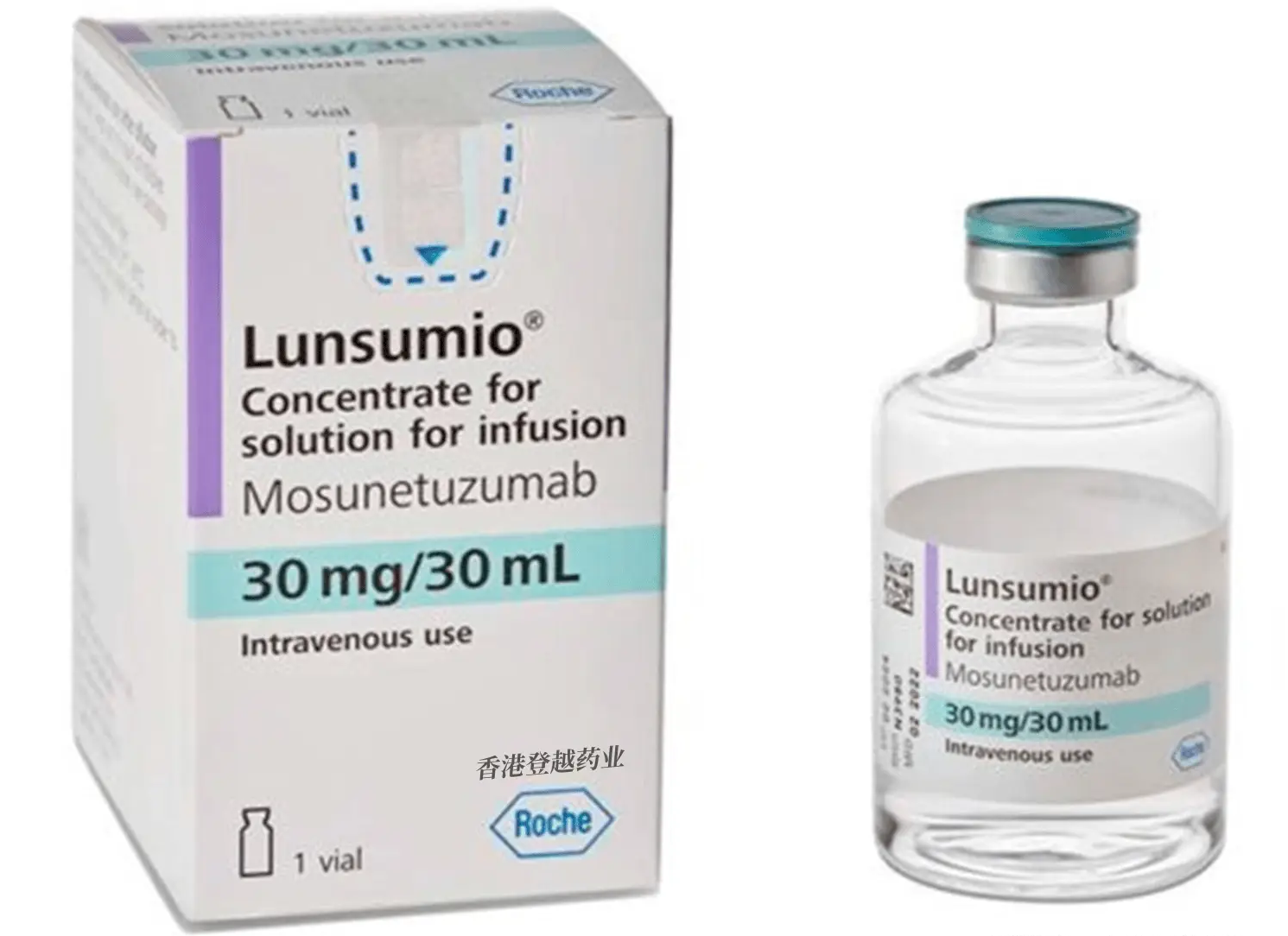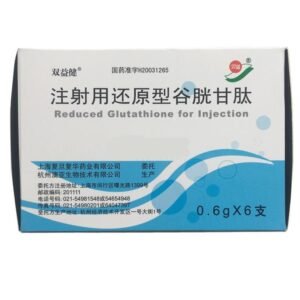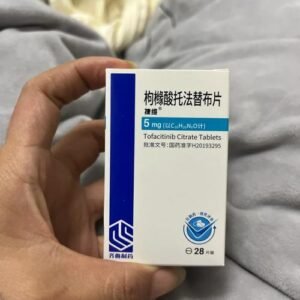Mosunetuzumab Injection 莫妥珠单抗注射液
Mogamulizumab is a humanized monoclonal antibody drug, mainly used to treat relapsed or refractory peripheral T-cell lymphoma (PTCL) and cutaneous T-cell lymphoma (CTCL). It blocks cancer cell signal transduction by targeting the CCR4 receptor and activates the immune system to clear abnormal cells. It has been approved for clinical use in some countries.
1. Drug category and mechanism of action
Mogamulizumab is an immunotherapy drug that works by specifically binding to the CCR4 protein (a receptor highly expressed in some T-cell lymphomas). Its mechanisms include:
Blocking cancer cell proliferation signals: inhibiting CCR4-mediated tumor growth and metastasis;
Enhancing immune clearance: guiding immune cells to kill cancer cells through the antibody-dependent cellular cytotoxicity (ADCC) effect.
2. Indications and clinical applications
Peripheral T-cell lymphoma (PTCL): for patients who have relapsed or are refractory to other treatments;
Cutaneous T-cell lymphoma (CTCL): especially mycosis fungoides (MF) and Sézary syndrome (SS);
Combination therapy: combined with chemotherapy or other targeted drugs, it can improve the efficacy.
3. Usage and dosage
Administration method: intravenous infusion, usually once every 2 weeks, the dose is adjusted according to body weight (about 1 mg/kg);
Treatment cycle: continuous treatment is required until the disease progresses or intolerable side effects occur;
Pretreatment: anti-allergic drugs (such as antihistamines) are required before medication to reduce infusion reactions.
IV. Common side effects and treatment
Most of the side effects of motuzumab are related to immune activation:
Infusion reaction (fever, chills, etc.): can be alleviated by slowing down the infusion rate or drug pretreatment;
Skin reaction: rash, itching, be alert to severe dermatitis;
Infection risk: due to immunosuppression, opportunistic infections need to be monitored and prevented;
Hematological toxicity: such as lymphocytopenia, regular blood routine examination is required.
V. Research progress and limitations
Efficacy data: Phase III clinical trials show that motuzumab can extend the progression-free survival of CTCL patients to about 7.7 months (3.1 months in the control group);
Drug resistance problem: some patients have decreased efficacy due to downregulation of CCR4 expression or immune escape;
Exploration direction: Combination with PD-1 inhibitors or new targeted drugs may improve prognosis.
VI. Precautions and contraindications
Contraindications: People who are allergic to drug ingredients and patients with active autoimmune diseases;
Special populations: Pregnant women and lactating women need to carefully assess the risks;
Monitoring requirements: Liver and kidney function, blood counts and infection indicators need to be regularly assessed during treatment.
Summary
Motuzumab provides a new treatment option for refractory T-cell lymphoma, but its application requires strict assessment of patient indications and potential risks. Individualized plans need to be combined in clinical use, and adverse reactions should be closely monitored.
View more
Share:
Products
Our offers
Health Classification
Let us work together to protect precious health




























